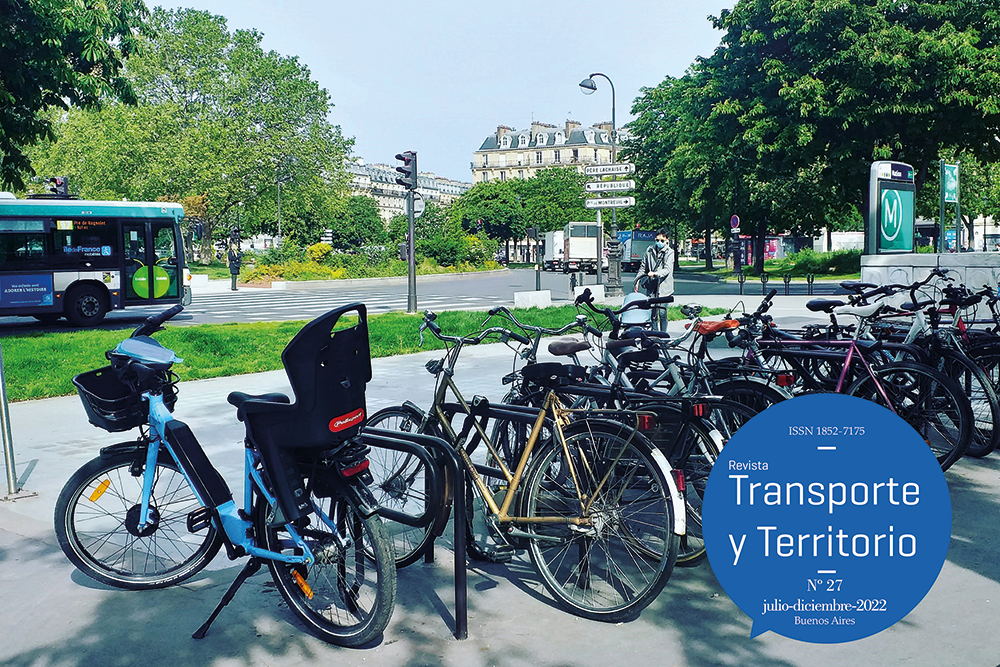Bicicleta y acceso desigual al espacio de trabajo. Caso de ciclistas commuters y repartidores en Lima
Bike and unequal access to the workplace. Case of commuters and delivery cyclists in Lima
Abstract
The number of young commuters and delivery cyclists, the last ones of venezuelan origins, has increased in several latin american cities, such as Lima, in recent years,. Based on interviews, participant observations, and a mobile ethnography, carried out from 2017 to 2020, the research compares and makes visible the differences in access to the workplace of these two types of cyclists through the study of accessibility barriers and their individual and group negotiations. it concludes that the difference starts with the purpose of the bicycle's use, and the socioeconomic, temporal, and spatial particularities of each one increased it. the commuter moves a few minutes and kilometers using its position and social class resources for fast, secure, and light access. The delivery moves for more hours and kilometers, where its scarce economic resources, migrant and precarious labor status generates a risk, limiting and exhausting access. The research proposes a critical intervention to the study of bicycle mobility, highlighting the necessity to include other cyclists and their particularities, as well as approaches to analyze it as a way of inhabiting the city.Downloads
Download data is not yet available.
Published
2022-12-02
How to Cite
Román García, D. (2022). Bicicleta y acceso desigual al espacio de trabajo. Caso de ciclistas commuters y repartidores en Lima. Revista Transporte Y Territorio, (27). https://doi.org/10.34096/rtt.i27.10905
Section
Artículos

1.jpg)

3.png)























